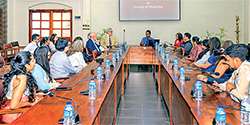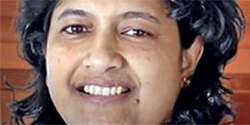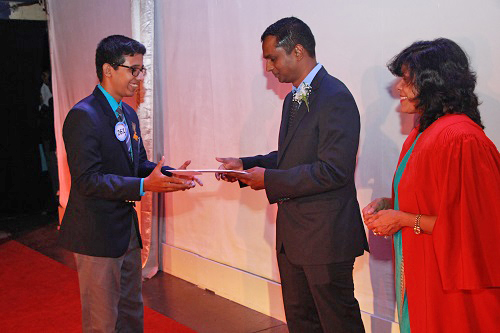External BA degrees to be restructured to increase graduate employment
New BA degree course curricula to be approved by the UGC on or before March 1
Popular degree subjects have no positive outcome or result in skills that enhance employability, a committee appointed by the Education Ministry to look into restructuring and improving the curricula of Bachelor of Arts (External) degrees awarded by state universities has observed. They said a majority of the courses offered lack work-based training, and the English proficiency and IT skills of most graduates are poor. The University Grants Commission (UGC) announced this week that it will permit the resumption of the new registrations for BA (External) degree programmes only if the programmes are restructured, approved by the Senate and submitted to the UGC’s Quality Assurance Council on or before March 01 this year.
UGC Chairman Sampath Amaratunge said the UGC temporarily suspended new registrations for the Bachelor of Arts (External) in August last year, to review and restructure the existing curricula. A nine member committee headed by Prof. Ranjith Arthanayake was appointed to identify the areas of concern. Based on a tracer study on graduate employment conducted by the UGC in 2018, the committee found that the lowest rate of employment was among Arts graduates and Performing Arts graduates, Prof. Amaratunge said. The committee had set a list of recommendations including introducing a ‘basket’ of popular subjects and allowing students to select only one subject from the basket.
The first ‘basket’ would include: the most demanding subjects due to the convenience in selection, and the subjects with the highest graduate un-employability rate such as Sinhala, political science, history, sociology, psychology, mass communication etc. The second ‘basket’ would include the subjects with the lowest student enrolment such as social statistics, Chinese, English, archaeology, economics, international studies etc. Other subjects such as languages, religion, civilisations etc. would be included in the third ‘basket’. Students would be allowed to select only one subject from the first basket. The committee had also recommended introducing a ceiling on numbers permitted to enroll for a course, for example giving 15 percent for the total enrolled to those who have prior learning such as diplomas, NVQs in the given subject.
The committee instructed universities to introduce workbased training for external candidates and to develop guidelines for such training. The committee recommended 300 hours of training, made compulsory, to be completed at any given time after the first year of the degree. Introducing a well-designed credit based English language module based on the University Test for English language (UTEL) benchmarks had been made compulsory in the recommendations. The committee also recommended state universities to introduce a well-designed credit based IT module for each year with emphasis given to hands-on IT skills which can be applied in their prospective workplaces.
One of the recommendations was to introduce English as the medium of instruction for the revised programmes. The committee had also submitted admission criteria for external degree candidates, such as considering an Z-score, recognition of prior learning (to reduce unemployment), giving validity for degree programmes up to a maximum of twice the prescribed period and adhering to 1:2 internal-external ratio. (NF)









































.jpg)
.jpg)
.jpg)

.jpg)
.jpg)
